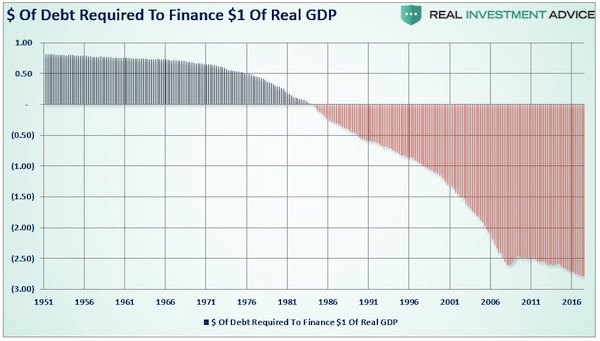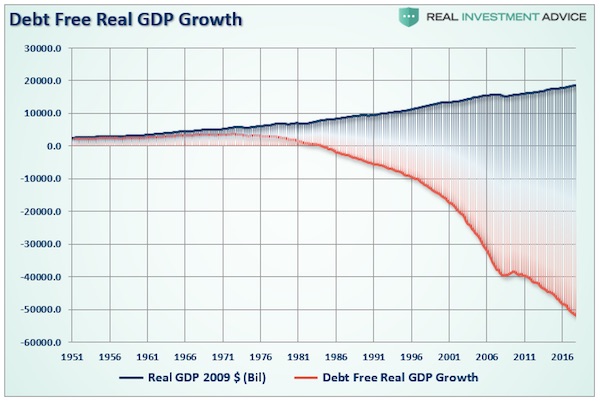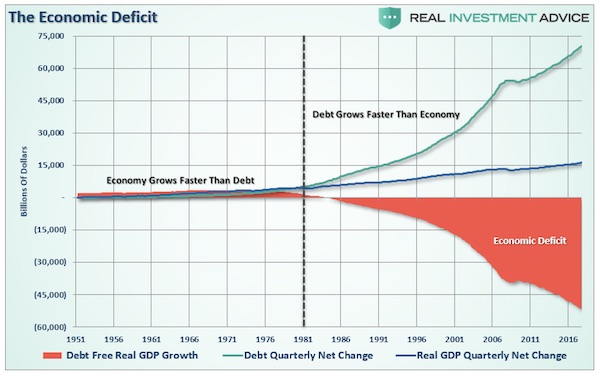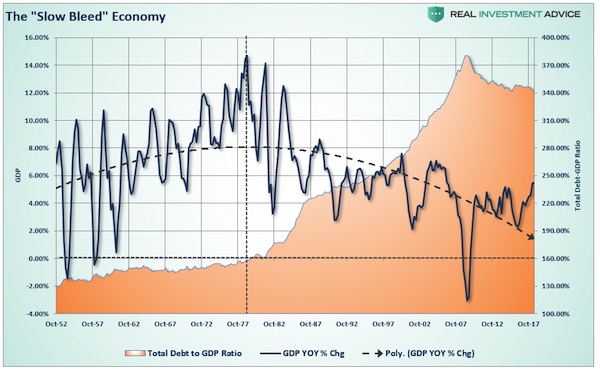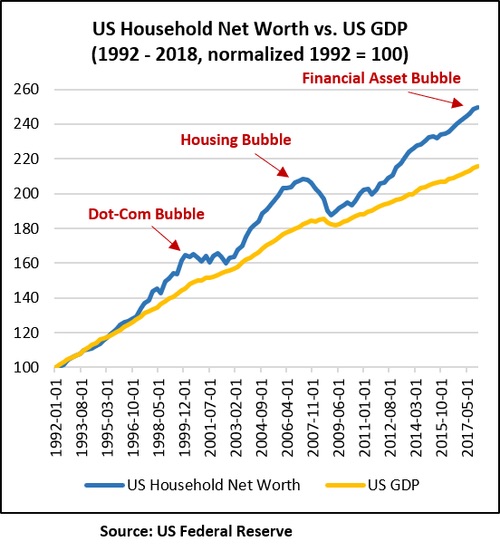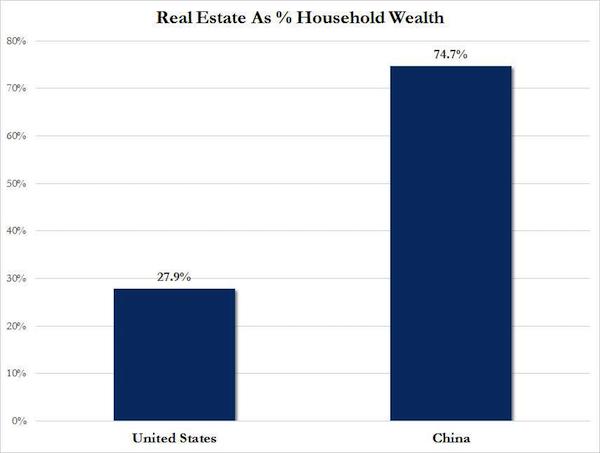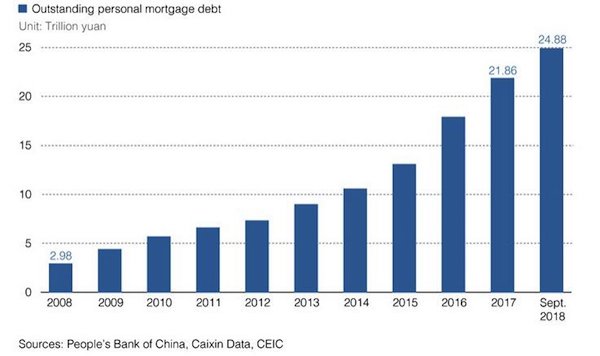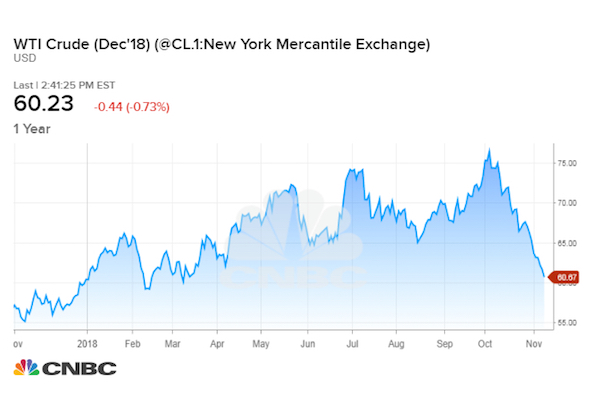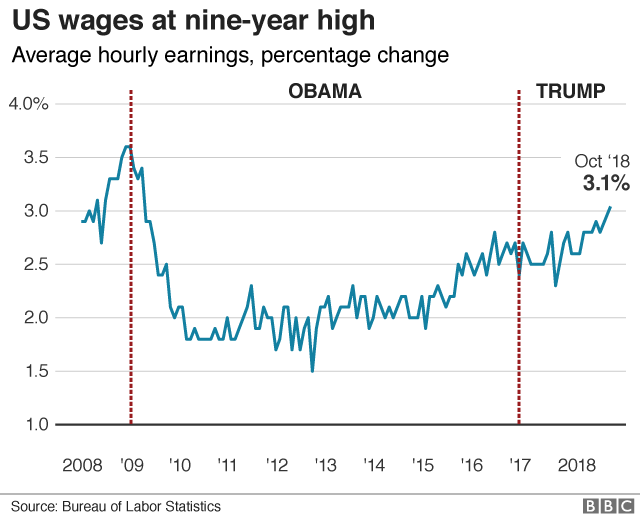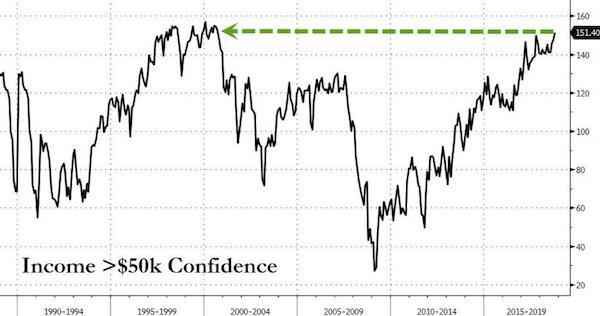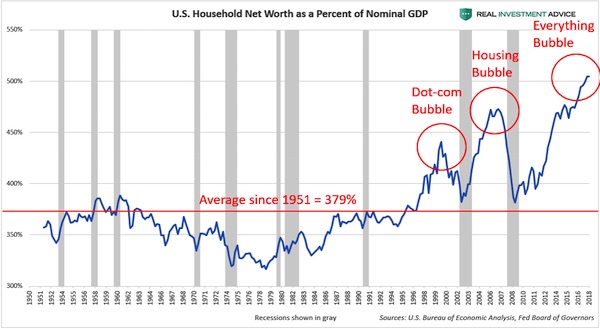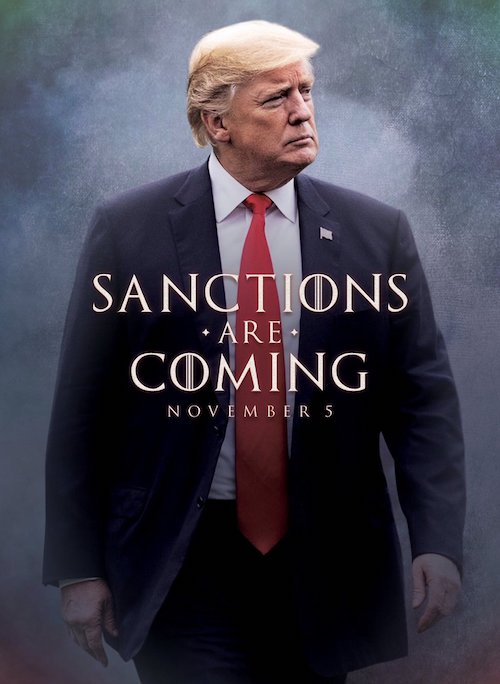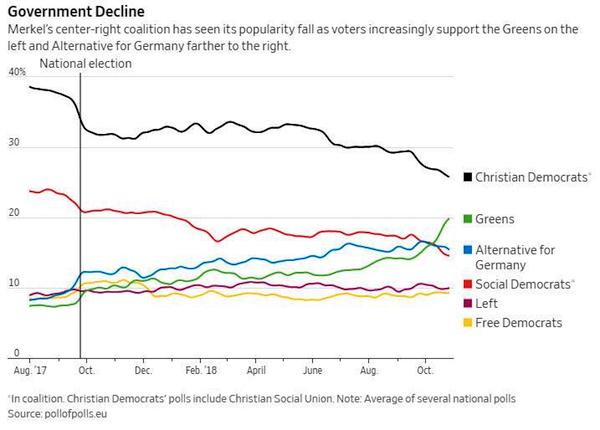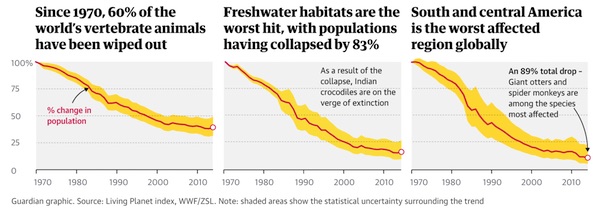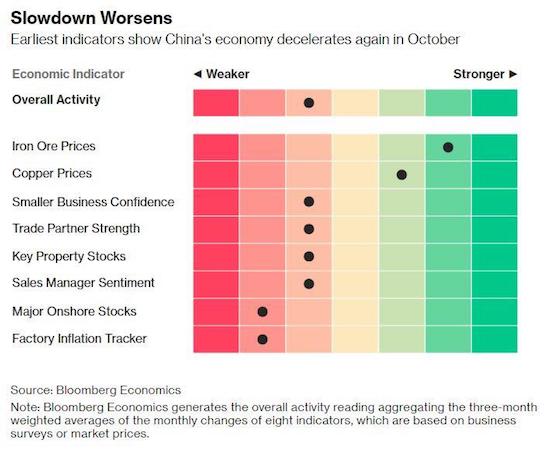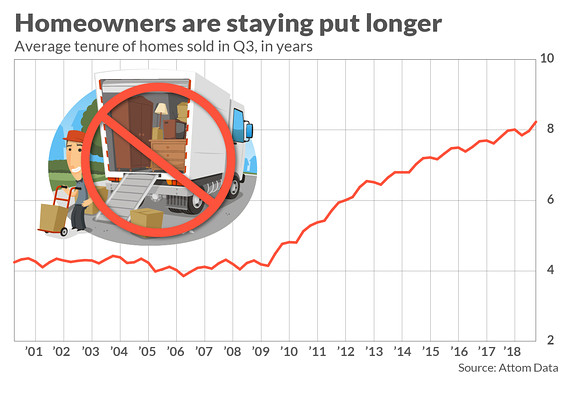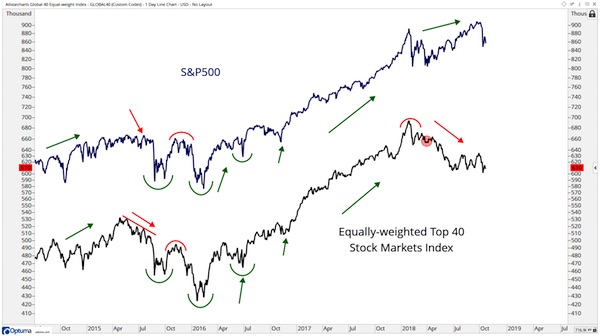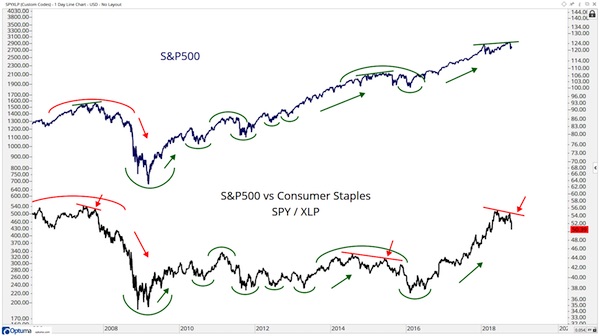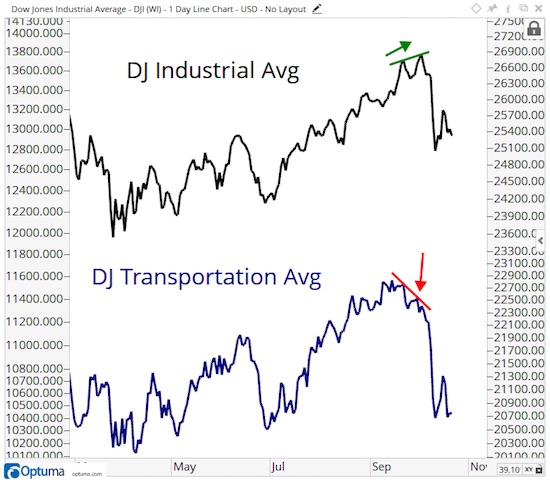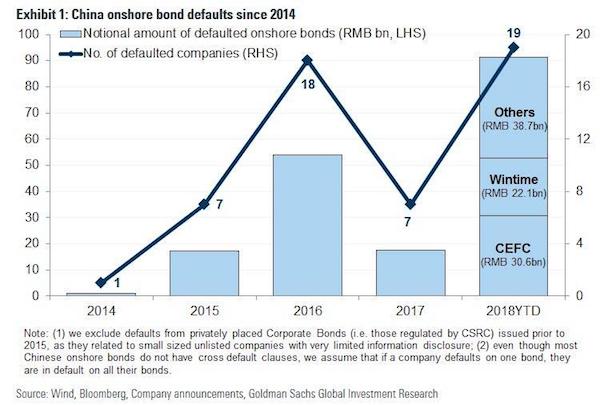
Pablo Picasso Still life � 1917

At sort of the last moment, the long awaited deal is announced. Alas, all it really does is push forward any awkward decisions- and there are many. And even that can be voted down by the Cabinet, or parliament, or some other party involved, like the DUP. One thing seems certain: Theresa May will no longer be in charge when actual decisions are made. So why would she care? It’s about saving face by now.
• Britiain, EU Agree on Brexit Plan (G.)
Theresa May summoned her cabinet to an emergency meeting on Wednesday afternoon to sign off her long awaited final Brexit deal, prompting hard-Brexit Tories to call for senior ministers to stand up and block it. The critical meeting is the culmination of months of negotiations and will see May’s senior ministers consider whether they can personally endorse the agreement that the prime minister has been able to reach. Ministers were summoned to No 10 in the early evening and some met individually with May or her chief of staff, Gavin Barwell. They were given the chance to read the key documents, although they were not trusted to take any papers home.
Further one-on-one meetings were expected to take place on Wednesday. “Cabinet will meet at 2pm tomorrow to consider the draft agreement the negotiating teams have reached in Brussels, and to decide on next steps,” a No 10 spokesman confirmed. “Cabinet ministers have been invited to read documentation ahead of that meeting.” Key elements of the deal began to leak in the early evening. The UK was understood to have agreed that an independent arbitration committee will judge when a UK-wide customs backstop could be terminated, comprising an equal number of British and EU representatives plus an independent element.
There will be a review in July 2020, Brussels sources added, six months before the end of the transition period, at which it will be determined if the UK is ready to move to a free trade deal; transfer to the backstop; or extend the transition period, possibly by a year to 2021.

Scary. The leader of one political party seeks to decide with Silicon Valley, what constitutes hate speech. The main potential target of this is Marine le Pen, who’s already had her share of hate accusations. Thing is, Macron has fallen behind her in the -EU election- polls, his popularity has fallen to 23%. And now Zuckerberg gives him the tools to get rid of Le Pen.
• France and Facebook Announce Partnership Against Online Hate Speech (Pol.eu)
Emmanuel Macron just “friended” Mark Zuckerberg. The French president announced on Monday a six-month partnership with Facebook aimed at figuring out how the European country should police hate speech on the social network. As part of the cooperation — the first time that Facebook has teamed up with national politicians to hammer out such a contentious issue — both sides plan to meet regularly between now and May, when the European election is due to be held. They will focus on how the French government and Facebook can work together to remove harmful content from across the digital platform, without specifying the outcome of their work or if it would result in binding regulation.
The partnership, which will involve meetings in Paris, Dublin and California, may be broadened out to cover other as yet unnamed areas after six months. A French official who asked not to be named called the partnership an “unprecedented experiment” that would grant authorities insight into Facebook’s processes to formulate recommendations that are “concrete and operational.” The social networking giant is now trying to lobby national lawmakers on the perceived dangers of regulating the internet. “We are giving blind faith to our daily digital tools,” Macron told an audience in Paris. “Today, when I see our democracy, internet is much better used by the extremes … or by terrorist groups.”

Feeding on itself by now?!
• Oil’s Unprecedented Slide Accelerates, Capitulates To Darkening Outlook (BBG)
Oil’s unprecedented decline deepened as investors fled a market hammered by swelling excess supplies, a darkening demand outlook and U.S. President Donald Trump’s Twitter critique of the world’s biggest crude exporter. Futures plunged 7.1 per cent in New York on Tuesday for the biggest one-day drop in three years. OPEC’s dire forecast for 2019 demand came at a time of steadily rising American production and stockpiles. Trump admonished Saudi Arabia for planning to curb output and lamented prices that settled below US$56 a barrel for the first time in a year. “This tweet certainly did not help prices,” said Warren Patterson, a senior commodities strategist at ING Bank.
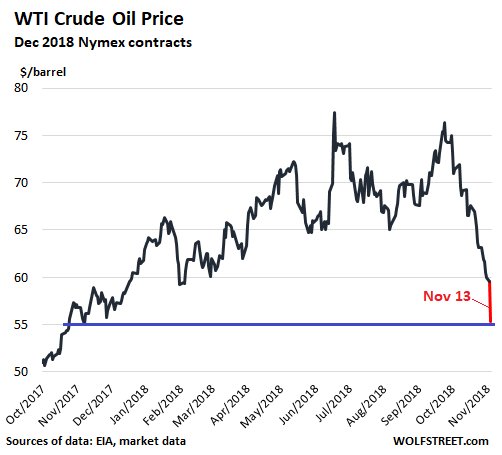
“Given the growing global surplus over the first half of 2019, OPEC will likely try to ignore President Trump’s call as much as possible.” West Texas Intermediate futures have fallen for a record 12 sessions on fears that a supply glut similar to the price-killing surplus of 2014 is redeveloping. In London, Brent futures have declined in 11 of the past 12 sessions. Money managers’ combined bullish positions in WTI and Brent sank to the lowest in 14 months as of Nov. 6, Commodity Futures Trading Commission data show, as long positions shrank and shorts increased.
“Today’s move is just capitulation,” said Nick Gentile, managing partner of commodity trading advisor NickJen Capital Management & Consulting LLC in New York. “You’re getting a combination of the systematic CTAs, the trend following guys, adding to the shorts and global macro guys liquidating longs.” WTI for December delivery dropped US$4.24 to end the session at US$55.69 a barrel on the New York Mercantile Exchange. Total volume traded Tuesday was about 90 per cent above the 100-day average.
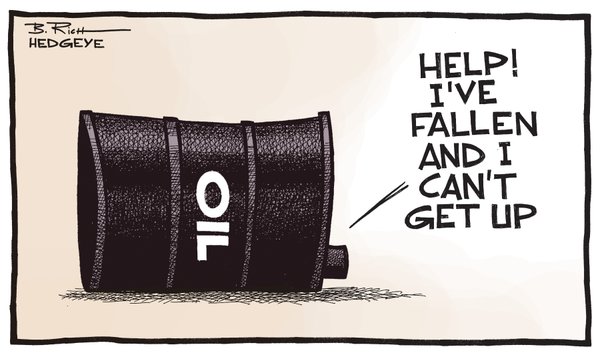

Master graphmaker Lance Roberts has some more. I picked a few.
• Major Markets Are All Flashing Warning Signs (Roberts)
[..] the failure of the market to hold the 200-dma also increases the downside risk of the market currently. There is an important point here to be made about “bull markets” and “bear markets. While there is no “official” definition of what constitutes a “bull” or “bear” market, the generally accepted definition is a decline of 20% in the market. However, since I really don’t want to subject my clients to a loss of 20% in their portfolios, I would suggest a different definition based on the “trend” of the market as a whole. As shown in the chart below: • If prices are generally “trending higher” then such is considered a “bull market.” • A “bear market” is when the “trend” changes from positive to negative.
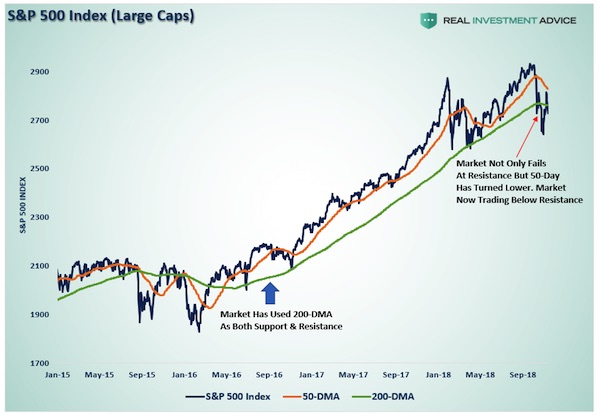
[..] what is happening domestically should not be a surprise. The rest of the world markets have already confirmed bear market trends and continue to trade below their long-term moving averages. (The very definition of a bear market.) While it has been believed the U.S. can “decouple” from the rest of the world, such is not likely the case. The pressure on global markets is a reflection of a slowing global economy which will ultimately find its way back to the U.S.
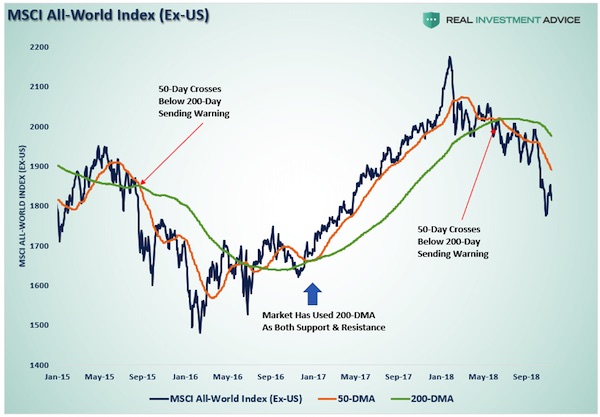
(Note: we closed all international and emerging market positions in our portfolios at the beginning of this year.) Just as a side note, China has been in a massive bear market trend since 2015 and is down nearly 50% from its previous highs.
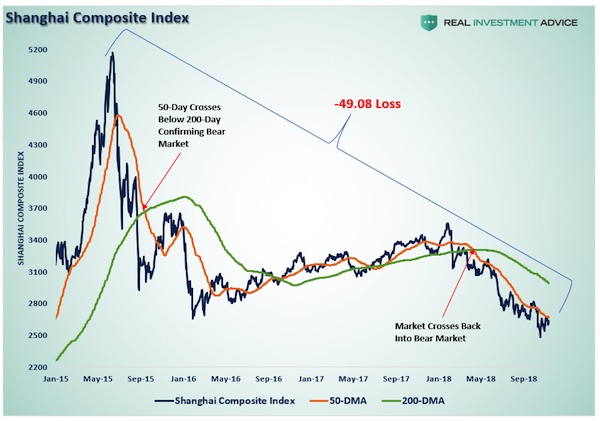

China’s foreign reserves are under severe pressure.
• Trump’s Tariff Battle With China Spurs Record Dollar-Yuan Trading (CNBC)
Market uncertainty tied to the ongoing U.S.-China trade war has spurred more transactions than ever before between the American dollar and the Chinese yuan in recent months. Much of that volume comes as businesses and investors with exposure to the Chinese market are looking to hedge their foreign exchange risk. Many of them are looking to buy into the strengthening dollar, and that’s stoked speculation that Chinese authorities are intervening in the market to defend their currency, boosting trading volumes to new highs in the process. On Tuesday, currency traders told Reuters major state-owned banks were selling dollars to defend the Chinese yuan, as the greenback climbed to a 16-month peak against a basket for currencies.
Most trading between the two currencies takes place on the spot market, where dollars and yuan change hands as soon as a deal is done. That sort of market has seen volumes surge this year for the currency pair. But futures trading — where the transaction is agreed to take place at a later date at a certain price — is also increasingly catching dollar-yuan traders’ interests, according to Benjamin Lu, an investment analyst with Singapore brokerage Phillip Futures. [..] ups-and-downs in the foreign exchange market have prompted a Singapore-based privately backed Chinese exchange to launch a new dollar-offshore yuan futures contract. “Nobody knows how the trade war will end. There’s a lot of fear and panic in the financial market and worries about trade,” said Eugene Zhu, CEO of the Chinese-backed Asia Pacific Exchange.

Malaysia should call Blankfein to testify in court. He knew, he was there. But Goldman is far more likely to just pay some huge fine.
• Goldman Sachs Is Implicated In History’s Largest Financial Con (Ind.)
Even by Wall Street standards of gouging customers this was one hell of a skim. In 2012 and 2013, the Malaysian government was raising $6.5bn (£5bn) from investors to establish a sovereign wealth fund and finance various domestic infrastructure investment projects. And the cut for Goldman Sachs – the most prestigious investment bank in the world – for arranging the fundraising from the global capital markets? Ten per cent, or $600m. Now we can have a guess as to why the Malaysian authorities were so insouciant about those extortionate fundraising costs: because they themselves were, apparently, going to loot the pot in one of the biggest frauds in history. Around half of the fund has gone missing.
According to the US Justice Department a fair amount has been pumped into luxury American real estate and shady art auction bids. Appropriately, some went into investing in Martin Scorsese’s The Wolf of Wall Street. At one stage $680m mysteriously appeared in the bank account of the former Malaysian prime minister, Najib Razak, who chaired the 1MDB advisory board, and who is now charged in his own country with corruption. Malaysian politicians, officials and financiers had effectively bought Goldman Sachs’ blue chip reputation to pull in naive investors to the “1MDB” state investment fund. Ten per cent probably seemed a reasonable cut in the circumstances. The question is: what did Goldman know about the theft?
The bank claims today that it was completely oblivious. But the senior Goldman banker on the ground in Malaysia, Tim Leissner, certainly knew. He pleaded guilty in New York to financial crimes related to 1MDB last week, including bribery of officials to ensure Goldman was the sole fundraiser. What’s even more problematic for the bank is that Leissner told the court there was a “culture” at Goldman Sachs of bypassing internal compliance. That’s backed up by US prosecutors, who say Goldman’s business culture in the region was “highly focused on consummating deals, at times prioritising this goal ahead of the proper operation of its compliance functions”.

And then let the IMF control them all.
• IMF Says Governments Could Set Up Their Own Cryptocurrencies (G.)
Governments should consider offering their own cryptocurrencies to prevent the systems becoming havens for fraudsters and money launderers, Christine Lagarde, head of the International Monetary Fund said referring to the fast-growing fintech industry. Lagarde said central banks had to work quickly to establish digital cash for burgeoning networks of private financial transactions or risk their mushrooming into trading networks that were inherently unstable. A system regulated by central banks could become the basis for a rapid expansion of financial services to developing world countries and the poorest people in western societies without the risks associated with privately managed digital currencies, she said.
[..] Speaking at a fintech conference in Singapore, Lagarde said central banks would take over the processing of transactions while private-sector providers offered innovative services to customers. “The advantage is clear. Your payment would be immediate, safe, cheap, and potentially semi-anonymous. And central banks would retain a sure footing in payments. In addition, they would offer a more level playing field for competition, and a platform for innovation. Meanwhile your bank or fellow entrepreneurs would have ensured a friendly user experience based on the latest technologies,. “Putting it another way. The central bank focuses on its comparative advantage – back-end settlement – and financial institutions and start-ups are free to focus on what they do best – client interface and innovation. This is public-private partnership at its best.”

Because Bezos is barely scraping by. Everywhere you look, Amazon gets rewarded for destroying communities.
• Amazon’s ‘HQ2’ Headquarters Will Cost US Taxpayers $2 Billion (R.)
Amazon.com picked America’s financial and political capitals for massive new offices on Tuesday, branching out from its home base in Seattle with plans to create more than 25,000 jobs in both New York City and an area just outside Washington, D.C. The world’s largest online retailer plans to spend $5 billion on the two new developments in Long Island City and Arlington, Virginia, and expects to get more than $2 billion in tax credits and incentives with plans to apply for more. The prize, which Amazon called HQ2, attracted hundreds of proposals from across North America in a year-long bidding war that garnered widespread publicity for the company. Amazon ended the frenzy by dividing the spoils between the two most powerful East Coast U.S. cities and offering a consolation prize of a 5,000-person center in Nashville, Tennessee, focused on technology and management for retail operations.
[..] At the outset of its search last year, Amazon said it was looking for a business-friendly environment. The company said it will receive performance-based incentives of $1.525 billion from the state of New York, including an average $48,000 for each job it creates. It can also apply for other tax incentives, such as New York City’s Relocation and Employment Assistance Program that offers tax breaks potentially worth $900 million over 12 years. What benefit the company would actually get was unclear. In Virginia, Amazon will receive performance-based incentives of $573 million, including an average $22,000 for each job it creates. These rewards come on top of $1.6 billion in subsidies Amazon has received across the United States since 2000, according to a database from watchdog Good Jobs First.

“We don’t have any defense that could deny the employment of such a weapon against us.”
• Decoding The Hypersonic Putin On A Day Of Remembrance (Escobar)
A battle of ideas now rages across Europe, epitomized by the clash between the globalist Macron and populism icon Matteo Salvini, the Italian interior minister. Salvini abhors the Brussels system. Macron is stepping up his defense of a “sovereign Europe.” And much to the horror of the US establishment, Macron proposes a real “European army” capable of autonomous self-defense side by side with a “real security dialogue with Russia.” Yet all these “strategic autonomy” ideals collapse when you must share the stage, live, with the undisputed stars of the global show: President Donald Trump and President Vladimir Putin.
So the optics in Paris were not exactly of a Yalta 2.0 conference. There were no holds barred to keep Trump and Putin apart. Seating arrangements featured, from left to right, Trump, Chancellor Angela Merkel, Macron, his wife Brigitte and Putin. Neither Trump nor Putin, for different reasons, took part in a “walking in the rain” stunt evoking peace. And yet they connected. Sir Peter Cosgrove, the governor general of Australia, confirmed that Trump and Putin, at a working lunch, had a “lively and friendly” conversation for at least half an hour. No one better than Putin himself to reveal, even indirectly, what they really talked about. Three themes are absolutely key.
[..] Vast sectors of the US Deep State are in denial, but Putin may have been able to impress on Trump the necessity of serious dialogue due to an absolutely key vector: the Avangard. The Avangard is a Russian hypersonic glide vehicle capable of flying over Mach 20 – 24,700km/h, or 4 miles per second – and one of the game-changing Russian weapons Putin announced at his ground-breaking March 1 speech. The Avangard has been in the production assembly line since the summer of 2018, and is due to become operational in the southern Urals by the end of next year or early 2019.
In the near future, the Avangard may be launched by the formidable Sarmat RS-28 intercontinental ballistic missile and reach Washington in a mere 15 minutes, flying in a cloud of plasma “like a meteorite” – even if the launch is from Russian territory. Serial production of Sarmat ICBMs starts in 2021. The Avangard simply cannot be intercepted by any existing system on the planet – and the US knows it. Here is General John Hyten, head of US Strategic Command: “We don’t have any defense that could deny the employment of such a weapon against us.”

“This is one of the scariest speeches I have heard as an MEP in my nine years. Merkel is an out-and-out European federalist and we should not be pandering to her as if she is on our side. She is on the side of the superstate.”
• Angela Merkel Calls For Creation Of ‘Real, True’ EU Army (Ind.)
Angela Merkel has called for the creation of a “real, true” European army, echoing a similar call by her French counterpart. The German chancellor’s backing for the force comes amid a spat with US president Donald Trump, who took offence to a suggestion by Emmanuel Macron that such an army could ensure Europe’s security in the shadow of the United States. Ms Merkel endorsed the creation of the army while addressing MEPs at the European parliament in Strasbourg. “We should work on a vision of one day establishing a real, true European army,” Ms Merkel said. The French president made his call during a radio interview last week: “We have to protect ourselves with respect to China, Russia and even the United States of America.
“We will not protect the Europeans unless we decide to have a true European army.” He added: “When I see President Trump announcing that he’s quitting a major disarmament treaty which was formed after the 1980s Euro-missile crisis that hit Europe, who is the main victim? Europe and its security.” [..] Ms Merkel’s intervention is significant because France has historically been the strongest and most vocal proponent of an EU army, with its neighbour tentatively endorsing proposals for a joint command structure for military interventions. Eurosceptics reacted angrily to the speech. Conservative MEP David Campbell Bannerman said: “This is one of the scariest speeches I have heard as an MEP in my nine years. Merkel is an out-and-out European federalist and we should not be pandering to her as if she is on our side. She is on the side of the superstate.”

Bone saw was a local purchase. As was the acid.
• Saudi ‘Kill Team’s’ Luggage Contained Syringes, Defibrillators, Scissors (AFP)
Luggage carried by a 15-member Saudi team dispatched to Istanbul included scissors, defibrillators and syringes that may have been used against journalist Jamal Khashoggi, who was murdered in the Saudi consulate, a pro-government Turkish daily said Tuesday. X-ray images of the luggage were published in the Sabah newspaper as the New York Times reported that a member of the team at the consulate had told a superior by phone to “tell your boss”, suspected to be Crown Prince Mohammed bin Salman, that the operation was accomplished. Turkish media has published gruesome details of the murder of 59-year-old Khashoggi who according to a Turkish prosecutor was strangled and dismembered soon after he entered the Istanbul consulate on October 2.
After repeated denials, Saudi Arabia finally admitted Khashoggi, a Washington Post columnist and Riyadh critic, had been murdered at the mission in a “rogue” operation. Turkish President Recep Tayyip Erdogan has said the 15-member Saudi team travelled from Riyadh to Istanbul to kill Khashoggi. The luggage carried by the team was loaded into two planes that left for Riyadh at 1520 GMT and 1946 GMT on October 2, Sabah newspaper said. The luggage contained 10 phones, five walkie-talkies, intercoms, two syringes, two defibrillators, a jamming device, staplers, and scissors, the paper reported. [..] Khashoggi’s body has never been found, but Sabah reported on Saturday that his killers poured his remains down the drain after dissolving them in acid.

“..with the false narrative that my mouth was merely a receptacle for a powerful man’s desire”
• Who Gets to Live in Victimville? (Monics Lewinsky)
The process of this docuseries led me to new rooms of shame that I still needed to explore, and delivered me to Grief’s doorstep. Grief for the pain I caused others. Grief for the broken young woman I had been before and during my time in D.C., and the shame I still felt around that. Grief for having been betrayed first by someone I thought was my friend, and then by a man I thought had cared for me. Grief for the years and years lost, being seen only as “That Woman”—saddled, as a young woman, with the false narrative that my mouth was merely a receptacle for a powerful man’s desire. (You can imagine how those constructs impacted my personal and professional life.)
Grief for a relationship that had no normal closure, and instead was slowly dismantled by two decades of Bill Clinton’s behavior that eventually (eventually!) helped me understand how, at 22, I took the small, narrow sliver of the man I knew and mistook it for the whole. The process became meta. As the project re-examined the narratives, both personal and political, surrounding the events of 1998, so did I. I revisited then-President Bill Clinton’s famous finger-wagging Oval Office interview from early 1998, in which I was anointed “That Woman,” and was transported to my apartment in the Watergate apartment complex.
Sitting on the edge of my grandma’s bed and watching it unfold on TV, 24-year-old me was scared and hurt, but also happy that he was denying our relationship, because I didn’t want him to have to resign. (“I didn’t want to be responsible for that,” I thought at the time, absolving anyone else of responsibility.) Forty-five-year-old me sees that footage very differently. I see a sports coach signposting the playbook for the big game. Instead of backing down amid the swirling scandal and telling the truth, Bill instead threw down the gauntlet that day in the Oval Office: “I did not have sexual relations with that woman, Miss Lewinsky.” With that, the demonization of Monica Lewinsky began. As it so often does, power throws a protective cape around the shoulders of the man, and he dictates the spin by denigrating the less powerful woman.

Just like alcohol and cocaine do.
• Social Media Increases Depression And Loneliness (TI)
Ever since sites like Facebook and Instagram became part of daily life, scientists have wondered whether they contribute to mental health problems. In fact, research has hinted at a connection between social media use and depression for several years. A new study, published in the Journal of Social and Clinical Psychology, has added more evidence to the theory. [..] “Here’s the bottom line,” said Melissa G. Hunt, a psychologist at the University of Pennsylvania and lead author of the study. “Using less social media than you normally would leads to significant decreases in both depression and loneliness. These effects are particularly pronounced for folks who were more depressed when they came into the study.”
She added 18-to-22-year-olds shouldn’t stop using social media altogether, but cutting down might be beneficial. “It is a little ironic that reducing your use of social media actually makes you feel less lonely,” she said. “Some of the existing literature on social media suggests there’s an enormous amount of social comparison that happens. When you look at other people’s lives, particularly on Instagram, it’s easy to conclude that everyone else’s life is cooler or better than yours.”

Mammals too. Semen is temperature sensitive.
• Heatwaves Can ‘Wipe Out’ Male Insect Fertility (G.)
Heatwaves severely damage the fertility of male beetles and consecutive hot spells leave them virtually sterilised, according to research. Global warming is making heatwaves more common and wildlife is being annihilated, and the study may reveal a way in which these two trends are linked. The scientists behind the findings said there could also be some relevance for humans: the sperm counts of western men have halved in the last 40 years. Researchers studied beetles because their 400,000 species represent about a quarter of all known species. Insect populations are plunging worldwide as temperatures rise, falling by about 80% in 30 years in Puerto Rico’s rainforest and by 75% in German nature reserves.
Insects are such an integral part of life, as pollinators and prey, that scientists say their decline could lead to “ecological Armageddon”. Little is known about the precise causes of the decline, though climate change, habitat destruction and global use of pesticides are considered probable factors. The research, published in the Nature Communications journal, found that exposing beetles to a five-day heatwave in the laboratory reduced sperm production by three-quarters; females were unaffected. “Beetles are thought to constitute a quarter of biodiversity, so these results are very important for understanding how species react to climate change,” said Kris Sales, at the University of East Anglia, who led the work.
Other research has shown that heat can damage male reproduction in humans as well as cows, sheep and other mammals. “There could be relevance for human fertility,” said Prof Matt Gage, co-leader of the UEA research group. “The paradox is that one of the reasons the climate is warming up and we are having more heatwaves is there are too many humans. So maybe this is a leveller.” Stuart Wigby, of the University of Oxford, who was not involved in the study, said: “Given what we already know about the generality of the sensitivity of sperm to heat, there is every reason to expect that similar effects would be seen in other insects and also in mammals including humans.”



